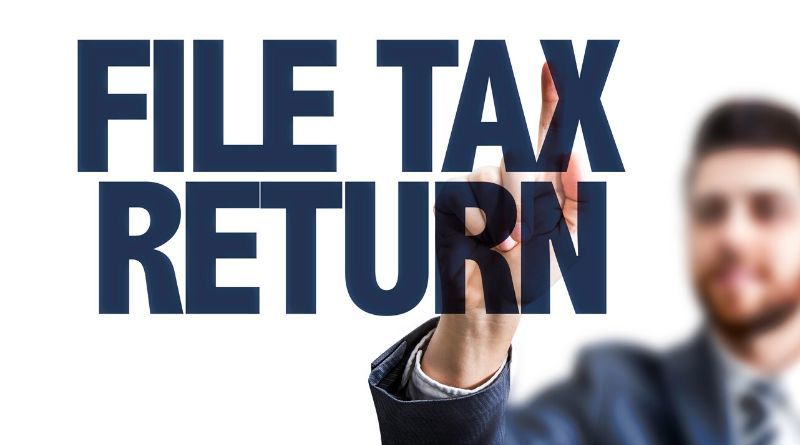I'm Late Filing My Tax Return
This can, of course, happen for a host of different reasons from simple absent mindedness to a non-submission, resulting from a longer-term more systemic issue.
At the outset, it is important to note that, in most the filing of late tax return will result in financial penalties of some description and an interest charge based on the tax that should have been paid. For example, the penalty for up to a 3-month late submission of a tax return is £100. In the event that your tax return and tax liability payment is more than 3 months late there will be more than £100 to pay.
Regardless of the reason , our advice would always be to move towards a full tax disclosure as soon as possible
utilising the most beneficial disclosure facility available, if that is relevant.
It is the case, however, that the actual amount of tax payable would not change, subject of course to an accurate submission, as the tax payable is a function of tax law, based on fact and rules and is no way punitive.
What constitutes late?
The deadline for the submission of paper tax returns is the 31 October following the end of the tax year, so for example the deadline for the submission of paper tax returns for the tax year ended 5 April 2010 is 31 October 2020.
Likewise, the deadline for the submission of electronic tax returns is 31 January following the end of the tax year, so using the same example, the deadline for the submission of electronic returns is 31 January 2021.
In either instance the deadline for the payment of the tax liability for the tax year ended 5 April 2020 is 31 January 2021 and it is this date that interest will be paid from, on the amount outstanding, if the full liability has not been paid, not withstanding the payment on account rules.
I simply forgot to submit my tax return
In the event that you are late filing your tax return simply because of an administration error or, for example, you were simply not aware that you had to submit a tax return in respect of some or all of your taxable income in recent tax years then it might simply be the case that you should submit your late tax return(s) to bring things up to date.
You should note, however, that even in this scenario there will be a penalty / penalties to pay and also interest on any late paid tax.
The penalty for up to a 3-month late submission of a tax return is £100. In the event that your tax return and tax liability payment is more than 3 months late there will be more than £100 to pay. The magnitude of this additional amount will be dependent on the overall period of time that you are late and, importantly, how late you are paying your tax liability.
It may be possible to appeal against a penalty incurred subject to there being a reasonable excuse for the same, and action taken in a timely manner once this excuse has ended. This appeal can be lodged either by post (using the SA370 form) or online (using the Government Gateway).
I have not submitted a tax return for a number of years
It is important to note that, whatever the reason this has occurred, and for how many tax years a tax return has not been submitted, there is always a process by which things can be brought up to date and HMRC have set out a number of different processes by which this can be achieved, dependant on the nuances of the particular case.
It is also important to note that, in terms of the result, penalties and interest payments are mitigated most effectively when the ‘lost’ tax years are the subject of a voluntary disclosure rather than being discovered by HMRC. It would always be our advice to potential clients to get on the front foot and take control of the process rather than waiting for the knock on the door.
If ‘lost’ Tax Years are discovered by HMRC, in respect of an individual with undeclared taxable income, then it is more likely that their starting position will be that there was a specific intention to never declare them and, therefore, potential penalties begin higher.
At the outset of a voluntary disclosure it is often a very daunting prospect to start pulling together documentation from a number of different tax years in order to evidence the voluntary disclose but, with appropriate care and consideration and guidance, this part of the process can be streamlined
I didn’t realise that certain elements of my income was taxable
There are a significant number of different types of taxable income which an individual could receive in a given tax year and tax law in the United Kingdom is very complex, covering many thousands of pages of legislation.
On this basis it is easy to see how certain elements of an individual’s overall taxable income may have been missed from tax returns on the basis that they did not realise that there was a requirement to declare them or they simply did not know the rules on how to disclose them in a fully compliant way.
Two good examples of this are rental income and overseas income. These types of taxable income are relatively common but are often subject to errors in disclosure.
In both instances, HMRC, in recognition of the fact that there have historically been significant disclosure issues in these particular areas, have put in place specific disclosure facilities which can be used by taxpayers to bring their tax affairs up to date. These are the Let Property Campaign (LPC) and the Worldwide Disclosure Facility (WDF).
These disclosure facilities provide standardised rules for the submission of historic under-declarations of these types of taxable income and are regularly used by experienced tax professionals to submit disclosures in respect of their clients.
Whilst these two facilities represent two examples of types of taxable income that are often inappropriately disclosed they are by no means the only two and we have seen examples involving all types of tax, including Capital Gains Tax, Inheritance Tax and Stamp Duty.
Should I use a specialist tax adviser to assist?
In all instances it is possible for individuals to liaise directly with HMRC in order to bring their own tax affairs up to date, so the obvious question is what is the advantage of using a specialist tax adviser to assist?
Obviously, by not retaining a specialist tax adviser, an individual will avoid professional fees, however, in our experience in the vast majority of situations a cost benefit analysis comparing fees versus outcome would suggest that it is prudent for individuals to engage professional assistance to support any disclosure.
The reason for this is threefold; firstly, technical knowledge and secondly, knowledge of the workings of the disclosure system, and lastly piece if mind that your tax affairs are now in professional hands.
As advised above, tax law is exceedingly complex and HMRC is under no obligation to advise tax payers of anything that they have missed in their disclosure which may benefit their position. It is imperative, therefore, that individuals have impartial tax advice from experienced practitioners to present their situation in the most objective way.
To discuss your circumstances with our tax advisers, call us on 0808 169 9090 or fill out an Enquiry Form and we will contact you directly.

